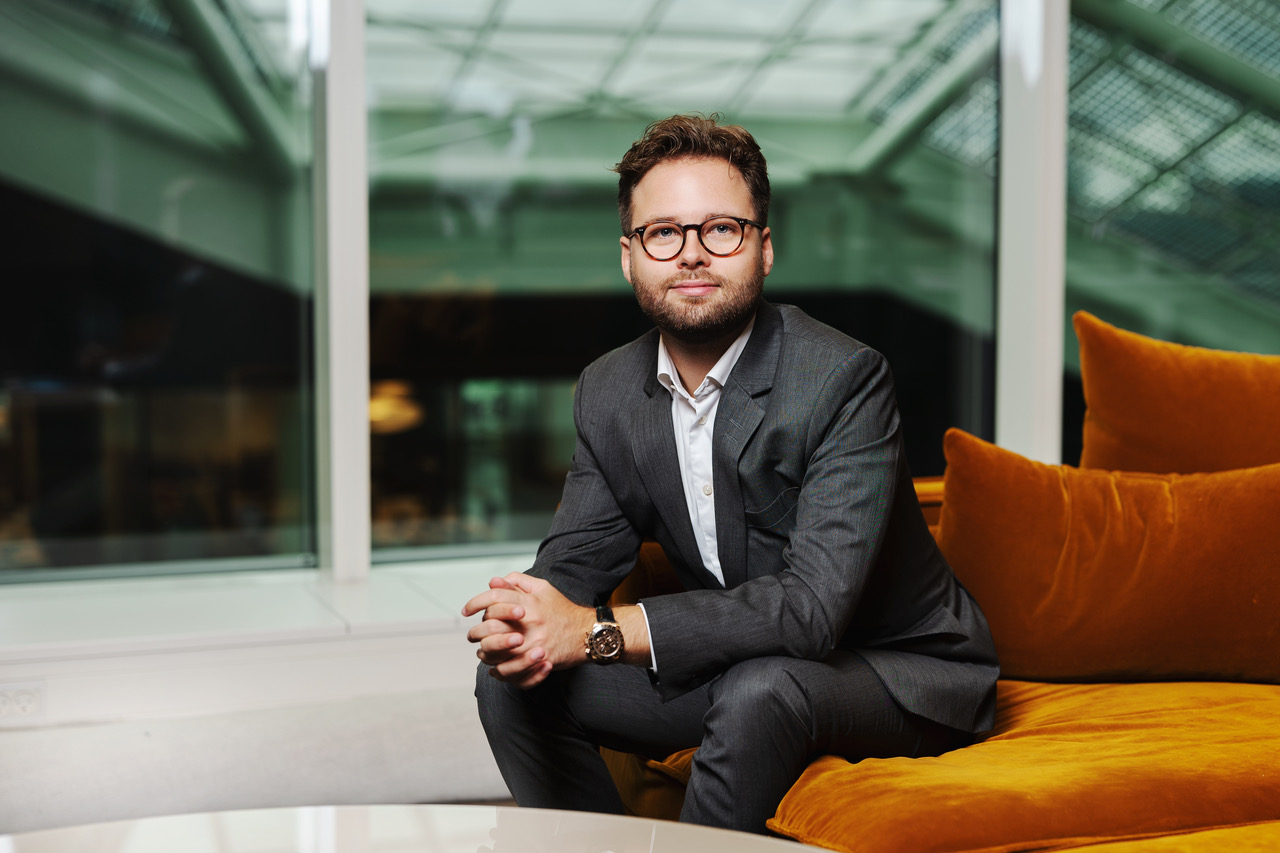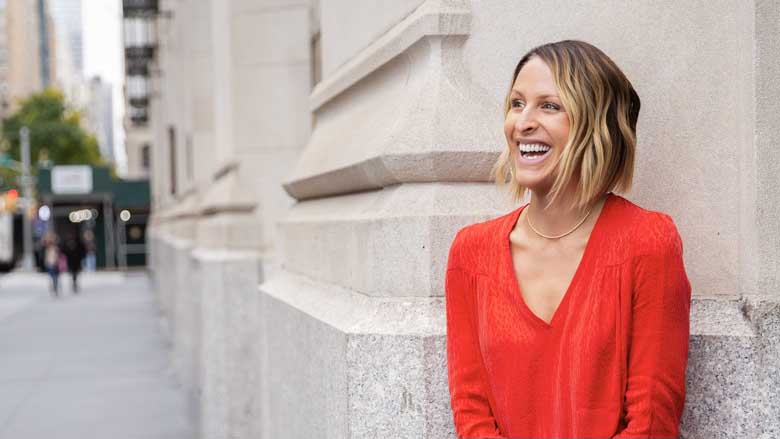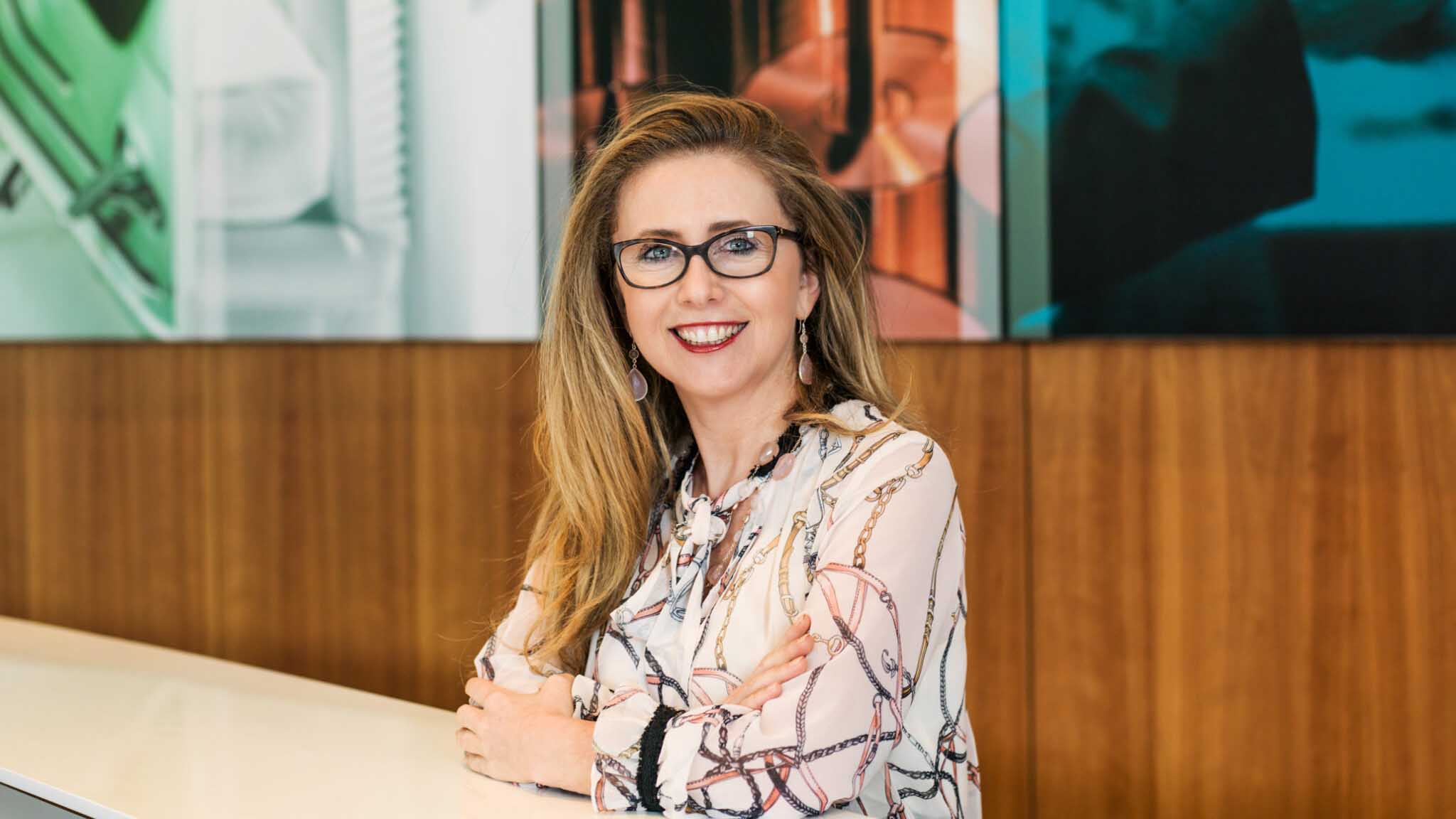BNP Paribas is one of the ten largest banks in the world with a presence in roughly 75 countries. It offers banking, finance, investment, savings, and insurance solutions and serves individuals, entrepreneurs, SMEs, corporations, and other institutional clients.
BNP Paribas is in the midst of a previously announced digital transformation that has seen a significant boost in spending on digital initiatives. The bank is the only one I can think of that has maintained a commitment to understanding innovation since the 1970s.
The BNP Paribas Plug and Play Acceleration Program was created to help accelerate the bank’s digital transformation by selecting startups that meet the specific needs of one or more of the bank’s business lines. Over the course of 12 weeks, each startup works on a PoC with a business line and engages with the BNP Paribas ecosystem. BNP Paribas provides advice ranging from business plan definition to pitch optimization, depending on the maturity and needs of the startup. FinTechs, InsurTechs, and RegTechs are all welcome. The program runs twice yearly and no equity is taken.
BNP Paribas and Plug and Play came together in 2017 to run the program in Paris at Station F, where participating startups receive free co-working space. Plug and Play, as you probably know, is a combination venture fund, network of startup accelerators, and corporate innovation consultancy with 28 locations around the globe.
“BNP Paribas has been a historic partner of ours in California for many years, so it made complete sense to deepen our partnership and structure an innovation program together in close proximity to their leadership. Our mission statement is to provide value to all the business lines within the Group internationally, through pilots and commercial agreements with new technologies and solutions.” says Omeed Mehrinfar, Managing Director of Plug and Play, EMEA.
Station F is the largest startup campus in the world. Located inside a former railway depot in the 13 arrondissement, Station F has more than 1000 startups in residence. Locating at Station F sent a strong signal from BNP Paribas about a desire to engage with the French ecosystem and nurture both French and foreign startups.
Says Roxanne Varza, Director of Station F, “Fintech is a fast-growing area with lots of programs and support already out there. But BNP Paribas and Plug and Play have launched a program that mixes Silicon Valley credibility and know-how with the sectorial expertise of one of the world’s leading banks.”
18 startups from eight countries participated in the accelerator’s first two batches. (See them here.) The early batches focused on 5 main topics:
- customer experience
- customer knowledge
- information security
- back-office efficiency
- services for SMEs
90% of the startups in the first batches completed proofs of concept (not surprising) and 30% of those will lead to commercial engagements (quite impressive). This isn’t innovation tourism.
Batch 3 is currently under way. Here are the startups:
AdviceRobo — Psychometric credit scoring and risk reduction by predicting creditworthiness, default, prepayments, and churn for millennials and SMEs not served by traditional banks. [Netherlands]
+Simple — Insurance brokerage for all professional needs: collective health insurance, office insurance, car insurance for business vehicles, all of which is customizable, affordable, secure and non-binding. [France]
Duco — Duco helps non-technical staff identify discrepancies in trades, transactions or reference data across different data sets using self-service technology. [UK]
OpenLegacy — Create APIs in minutes, deploy as projects in days. OpenLegacy is an enterprise API integration platform designed to accelerate the delivery of core (legacy) applications. [USA]
Mishipay — In-store payment app. Pay with your phone and walk out with your purchased products. No more queues. [UK]
Lore — Search, connect, classify documents across multiple sources and languages. Extract information from internal documents and public data (news, social media, press releases, corporate filings, transcripts). [USA]
Pikcio — A blockchain-based exchange for personal data, Pikcio creates the trust that’s needed to trade data in confidence. [France]
Tapoly — On demand insurance for freelancers, contractors and SMEs, and everyone else in the sharing economy and the gig economy. [UK]
Valoo — Personal inventory management app. Discover the real-time value of each of your items. Sell, share, lend your items using the Valoo sales comparison service. Insure or file a claim for free. [France]
Yogosha — A bug bounty platform. Producing bug reports from carefully-vetted security researchers that can be used to correct vulnerabilities and enhance cybersecurity. You only pay for discovered bugs. [France]
Helene Mouly is the Acceleration and Partnership Director for Startups, Fintechs & InsurTechs at BNP Paribas, and she is responsible for the BNP Paribas Plug and Play Acceleration Program at Station F.

Q. Helene, who is eligible to participate? Are there restrictions on geographic location, or revenue, or funding status?
A. All startups in FinTech and InsurTech can apply. We are looking for mature startups. What do I mean by “mature startups”? I mean startups who have already developed a product to the point where they can complete a pilot with big companies and they are already talking to other bank or insurance companies. The early-stage startup which is still figuring out what it could do is not possible because our program is very short – three months – we really need to deliver a proof of concept or MVP after these three months. We need a startup able to handle the project management.
Q. Do the participating business lines have particular business challenges in mind before the application process begins?
A. Yes. It is really the basis of the program. We ask at the beginning the pain points or requests of our business lines. After the aggregation of the pain points and requests, Plug and Play will suggest startups in line with those needs.
Sometimes we meet a wonderful startup with a very clever offering, but it might not be the right time for our business lines in terms of their strategic issues. This startup could however be a good fit six months later when it aligns with the requests from our business lines at that time.
Q. How do you gather this input from the business lines? Is there a world tour?
A. That was my work at the beginning, to promote and explain the program during the launch. Still now I spend a good amount of my time explaining the program to top management and to operational people. The goal is to know all these people, and form, I would say, an internal network. When it’s time to collect the requests we then organize a lot of calls with the right people, in order to learn the official requests of every business line.
Q. How do you find the startups?
A. Finding the startups is really the job of Plug and Play. Of course, some come through Station F and through our own networks, so now it’s mixed. But if you ask me why we went for a partnership model, we selected Plug and Play to be sure to have international coaching and to have the most well-prepared startups. We ask them to find relevant startups through their network.
What is interesting is that when we started 17 months ago, they had 21 or 22 locations in the world – not just in the United States but also in Asia, in Europe – and in a mix of different verticals. It could be IoT, it could be Food. Now, they are really creating FinTech hubs in Paris, in Frankfurt, in Tokyo, in Abu Dhabi, and of course in California. It is really good for us. And for them it’s easier to source the startups in this vertical.
Q. How is the final list of participants in each cohort chosen? Are the business lines actively involved to vetting and selecting? Do you make the selections together with Plug and Play?
A. BNP Paribas is the customer, and we decide because it depends on the involvement of the business lines. We send the initial list of startups to the business lines and then we organize calls and meetings to be sure that the startups selected are appropriate and answer to their pain points in terms of budget and in terms of the possibility to do a pilot. We then crossmatch in order to make the best choices for Selection Day.
On Selection Day, there are around 15 to 20 startups. Of course, Plug and Play will tell me that this one is very good or that one is very good based on their previous track record, but in the end the goal is to do pilots, so BNP Paribas will decide – we decide with the business lines – which startups will go out on stage during Selection Day.
Q. Can startups come from outside the EU?
A. This batch, we had more than 30% coming from the U.S. We have startups from Israel, from around Europe – from Spain, Germany, Sweden, Ireland, Switzerland, France. It’s an international program and they are welcome from everywhere.
In Batch #2, we had a startup from Israel that did a pilot in Germany. We also had a startup based in Paris that did a pilot in Turkey. Really, the geography is not a barrier to entry.
Q. What trends do you see among the newer applicants that distinguish them from earlier batches?
A. We had a lot of startups in Batches #1 and #2 focused on customer experience and customer profiling, IT back office and about SME topics. It’s always linked to people internally and we work well with the people looking for SME solutions. We saw a lot of startups about chatbots earlier and many addressing risk as well.
Q. Why was Station F the right place for your program rather than BNP Paribas space in Silicon Sentier or elsewhere in Paris? What does Station F bring to the table?
A. I think I will be able to answer your question much better next September after one year in the place. I would say first of all, it’s a wonderful place for a lot of reasons. It allows us to meet the ecosystem – my neighbors are Facebook, Microsoft, Vente-Privee (very famous in the French retailing space), LVMH. We can do cross-fertilization. We can work with Ubisoft or Thales in cybersecurity. We can think of topics that would be interesting to work on together. A lot of startups in the different programs are also interesting for BNP Paribas.
In comparison to being in a building with BNP Paribas in Opera, I think it is very different. In addition to this, there are many conferences, many events. You can be sure to know what the next trends will be. You can actually feel the next trends here, and I think it would not be the case if we were in a BNP Paribas building. There I would have to really try to find the trends, but the trends are here and they come to me.
Q. Do you offer your startups a deal on banking services they may need? What about the other startups at Station F? Is there a broader partnership?
A. Yes. BNP Paribas is the only bank in Station F with an acceleration program, so we represent FinTech and InsurTech. In addition to this, we also have perks that we offer to the startups.
Q. Does BNP Paribas invest in any of the participants?
A. It is important to know that we don’t take any equity and Plug and Play doesn’t take any either. In the middle of the program we can discuss investment with a startup, if we think it is a relevant startup. On our side we have our own fund as does Plug and Play. We invest separately, but yes, we can.
Q. And has that happened with the first batches?
A. On our side, our fund was created in just February / March this year, but we are currently in discussions. Plug and Play did invest in one startup.
Q. You have converted pilots to engagements at a very impressive rate.
A. If you take 2017, we did 20 pilots with 18 startups. Today, two are live, in production and I believe seven will be live by September. So seven out of twenty. It takes time, but I am very confident of the positive results.
Q. Access to data can be a stumbling block for FinTech startups. Does BNP Paribas make data available to program participants?
A. Yes, according to the objective of the pilot, it is case by case.
Q. Can you explain the differences between the Plug and Play accelerator the l’Atelier accelerator? Both of these BNP Paribas FinTech accelerators are in Paris.
A. The main difference is the fact that we are more international, so our startups are really coming from all over the world. Business lines are not just in Paris but they could be BNP Paribas Personal Finance in Germany or Personal Finance in Spain. Pilots could be done in foreign countries.
The second thing is that L’Atelier is linked to challenges, so a startup has to answer to a challenge. On our side we ask of the business lines their different problems and according to this we will select the startups.
Q. Are all your mentors from BNP Paribas?
A. It’s really according to the needs of the startup. They do request more for internal mentors. It’s a mix, though more are from BNP Paribas.
Q. Is there a demo day?
A. Yes! It’s an internal demo day but with a lot of people. The champions and the startups go out on stage and they show what they built in the three months. All the business lines can understand what the other business lines did with this startup, and sometimes it can help.
Q. Do startups from the first two batches continue to be part of the community?
A. Of course. It’s really one of the goals to create an alumni network, an alumni champion network, and to break all the silos within the bank.
Q. Selection day for Batch 4 was on the 26th of June. When is the application deadline for Batch 5, which will run in the beginning of next year?
A. Selection day for Batch 5 isn’t until next February however the sourcing period will be from October to November. Startups can indicate their interest here.
Q. What advice do you have for other banks about making an acceleration program successful? What are the keys to a successful effort?
A. Be sure you have the best startups and involve everyone in the bank, which is very challenging. It takes time. You need to have the right sauce, like in cooking, to create the most appropriate accelerator and to be focused on your KPIs. Be adept at communication so you can prove that it converts and that you have the right KPIs to track the transformation of your bank. And be very pragmatic.
Q. Paris is gaining recognition as a FinTech hub and promoting itself as an alternative to London. What are your thoughts about the Paris ecosystem? What do you like about it? What does it need?
A. I just spent a week in Canada to know better the ecosystem for AI – they are very advanced in AI. After the U.S. it is also a very important country. We discussed a lot about France and when you are in Montreal there are a lot of connections with the French ecosystem.
I would say in France you have absolutely wonderful students, we have very, very good research and the entrepreneurs to create the startups. The ecosystem is here because you have this research. You have the big companies, too, and they are very involved when it comes to working with startups. And, as you know, the government, with our new president, is involved, too, in developing entrepreneurship.
Now, the thing that’s next is to work better together. What I think is perhaps the difference with Canada is they are a little more advanced with this creation of the work between the research, big companies, and government. These three parts are very important. Station F is a good example of us trying to create this link. I think now we have all the things to create a very good Fintech and InsurTech ecosystem.
Q. What else do you want people to know about the BNP Paribas Plug and Play Acceleration Program?
A. I think we can speak about a change of mindset. The acceleration program and the time that we are based at Station F can really change the mindset about how we work in big companies. It helps to understand how we work with young people, with startups, being agile, or knowing that sometimes we would be more efficient to work two or three hours at home.
It’s behavior, too. At Station F you have young people in sneakers and jeans and t-shirts. That would not be the case at BNP Paribas! It’s changing, but slowly.
With the startups, I speak to top management and the startups can exchange with top management. Just a little reverse mentoring, I would say. I work a lot with HR to show the new generation is like thisand perhaps they are not ready to work as we did for decades and decades. The world is changing very quickly and if we stay as we are it could be dangerous for the bank. We have to change, and to my mind we are really in this process.
# # #



